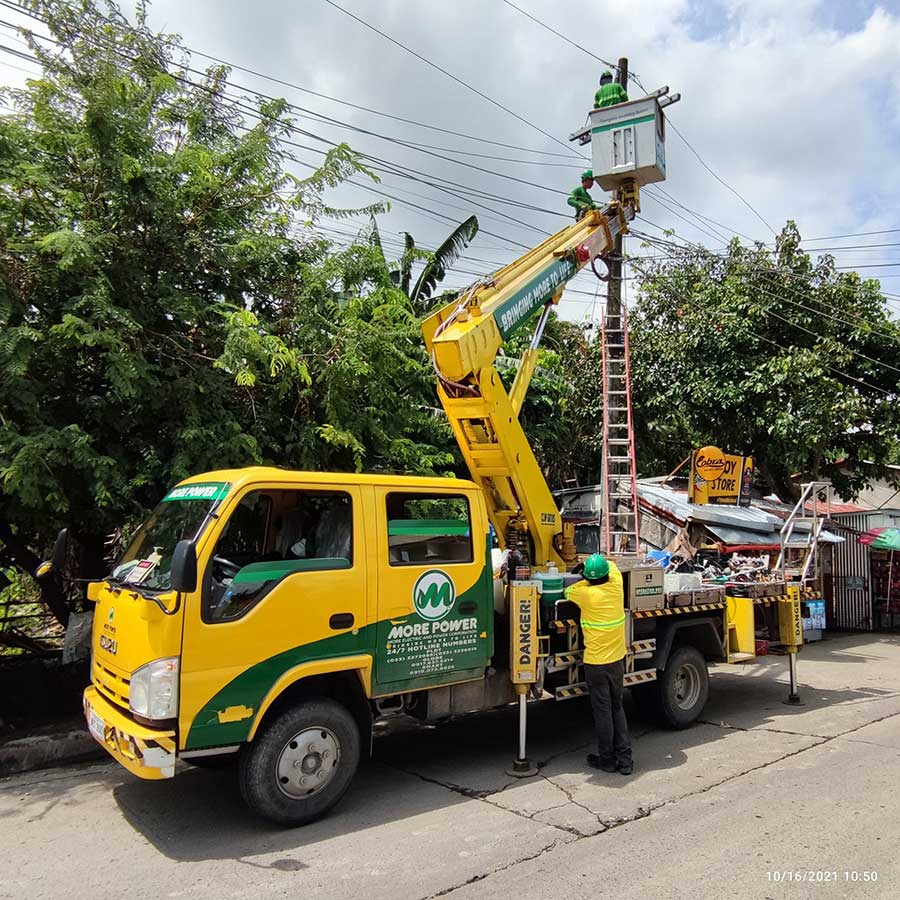
By Francis Allan L. Angelo
Iloilo City’s sole power distributor assured that it is not out to dislodge electric cooperatives in Iloilo province with the move to expand its franchise coverage to the service areas of Iloilo Electric Cooperatives (Ileco) I, II, and III.
MORE Power president and COO Roel Castro said their only aim is to fulfill the clamor of consumers for lower rates and better services.
“We are not out to take over the service areas of the Ilecos. We have nothing against them. Our objective is to give what the consumers want,” Castro said.
The House Committee on Legislative Franchises recently approved House Bill No. 10271 which would expand MORE Power’s existing franchise coverage (Republic Act No. 11212) beyond Iloilo City, to the 2nd and 4th congressional districts of Iloilo province.
These include the towns of Alimodian, Anilao, Banate, Barotac Nuevo, Dingle, Dueñas, Dumangas, Leganes, Leon, New Lucena, Pavia, San Enrique, San Miguel, and Zarraga, as well as Passi City.
These towns and city are already under the coverage areas of Ileco I, II, and III.
The house bill was authored by Reps. Michael Gorriceta (Iloilo, 2nd) and Braeden John Biron (Iloilo, 4th).
Castro said Ileco consumers may have seen the improvements and lower rate of P6.45 per kilowatt-hour that MORE Power brought to Iloilo City since it took over the power distribution service more than two years ago.
“Probably, because of the things MORE Power is doing in Iloilo City, while these are not done yet, other consumers saw the thing that changed in the city. Again, we have nothing against the cooperatives as we only want to fill in the void and provide what the consumers are not getting from the cooperatives,” he added.
Castro said that the low rates in the city is “not forever” as power prices fluctuate in the market but he assured that MORE Power will always try to fulfill its pledge to sell affordable power to consumers.
“If the cooperatives can follow our prices, that would be good kasi at least may choice ang consumers. We just want MORE Power to become a choice for the consumers. MORE Power set a precedent with lower price, and it has been our desire to bring down rates and will continue to do so.”
He added that it was not easy to bring down prices of power in the city nor are they being complacent in the current situation.
“If kaya pa, gagawin natin. We are not complacent with the current rate. MORE Power wants to get the best for the consumers. We will have that same attitude if given the chance to expand to the Ileco areas,” Castro said.
But what differentiates MORE Power from the cooperatives.
Castro said that as a private distribution utility (DU), it has minimal bureaucracy on its approval system, purchases and other matters.
“There are checkpoints and audits, but when it comes to work, we can move fast, and we are not saddled by the 8 a.m. to 5 p.m. work schedule. We work 24 by 7 to come up with decisions fast and be proactive in our strategy; that before things happen, we can already decide.”
Private DUs also have the financial advantage, especially in deploying resources without being saddled by regulatory parameters.
DUs base their capital expenditures (CAPEX) on the performance-based ratemaking mechanism of the Energy Regulatory Commission (ERC) wherein they are required to meet certain accomplishments before their CAPEX are approved.
This year, MORE Power allocated a P1.9-billion CAPEX which is still pending with the ERC.
But Castro said they decided to deploy the resources “because Iloilo City consumers cannot wait for what we promised them.”
Apart from their internal resources, electric cooperatives rely on the government, particularly the National Electrification Administration, for funds for their improvement projects.
As to laws giving electric cooperatives exclusive rights to their services areas, Castro there are cases when a DU shares service areas with cooperatives.
“Laws are made for the benefit of the consumers. If we look at the mandates of various agencies involved in the sector, at the end of the day, it is the consumers who matter. And again, in this case, if the consumers are clamoring, those laws are meant to protect consumers,” he added.
Section 4(q) of Republic Act No. 9136 (Electric Power Industry Reform Act or EPIRA of 2001) defines electric cooperatives as a “distribution utility”, having an exclusive franchise to operate a distribution system in a certain area is defined by their charter.
The same provision can be gleaned from RA 6038 (National Electrification Administration Act).
Is there a need to reexamine current laws to hasten rural electrification?
Castro said regulatory agencies set certain standards that must be met by electric cooperatives and DUs.
But as to changes to current power sector laws, these can be done in a market-driven context to attract investors in the electric distribution industry.
“There is no need for another law for this. We must consider market forces to prompt investors to plunk in resources in the sector, particularly the rates.”
















